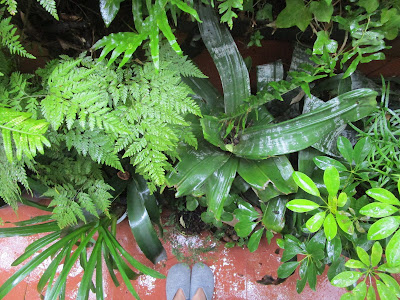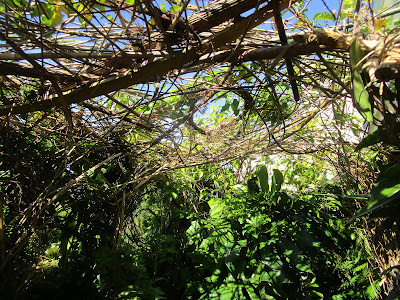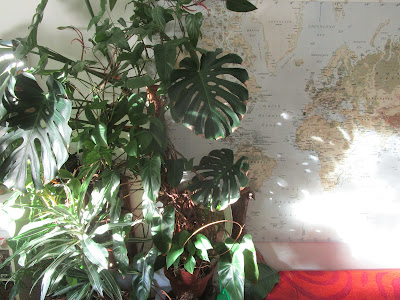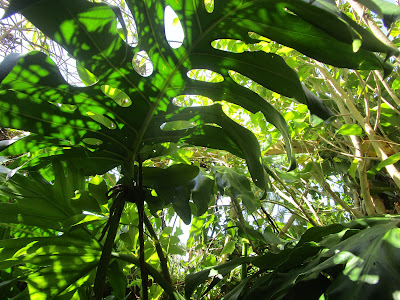"Everyday of continued exponential growth brings the world systems closer to the limits to that growth. A decision to do nothing is a decision to increase the risk of collapse." Donella H. Meadows, Dennis L. Meadows, Jorgen Randers & William W. Behrens III (1972). The Limits to Growth. Image by Monica Pinheiro, license CC BY-NC-SA ( CC )

"More than conversation at the interface, it is creative assemblages like these that explore and elaborate the particular dynamic capacities that digital media afford and the ways that through them humans and machines can perform interesting new effects (...) in uniquely particular ways." Lucy Suchman (2009). Human-machine reconfigurations: plans and situated actions.
Jul 2, 2021
Jun 28, 2021
June
The Craftsman "(...) focuses on the intimate connection between hand and head. Every good craftsman conducts a dialogue between concrete practices and thinking; this dialogue evolves into sustaining habits, and this habits establish a rhythm between problem solving and problem finding." Richard Sennet, 2009. The Craftsman.
Monica Pinheiro, license CC BY-NC-SA ( CC )
Jun 27, 2021
June
Jun 23, 2021
June
What can we do with what we already have? What is the environment giving in abundance that we can use to solve a need or a problem? Knowledge, art, technology, resources, «things»? While we aspire for something else, what can we do with what we have?
Jun 21, 2021
Summer
Images by Monica Pinheiro, license CC BY-NC-SA (CC)
Jun 18, 2021
June
"Any human activity that does not require a large flow of irreplaceable resources or produce severe environmental degradation might continue to grow indefinitely." (Donella H. Meadows, Dennis L. Meadows, Jorgen Randers & William W. Behrens III (1972). The Limits to Growth). Some activities are CO2 negative, like gardening, so they can and should be indefinitely increased. Image by Monica Pinheiro, license CC BY-NC-SA ( CC )
June
Jun 15, 2021
Jun 13, 2021
June
Jun 12, 2021
June
Jun 9, 2021
June
Jun 5, 2021
June
"So, what is your vision? What do you really want? What would make this a world that would make you excited to get up in the morning and go to work in it? (...) What kind of world would that be?" in «Final Warning Limits to Growth». Image by Monica Pinheiro, license CC BY-NC-SA (CC)
Jun 3, 2021
June
May 28, 2021
Cooling
May
May 22, 2021
May
May 17, 2021
May
May 15, 2021
May
May 3, 2021
Apr 22, 2021
April
Apr 17, 2021
Climate-neutral transitions
Note: Toolkit "‘Environmental Rehabilitation and Repurposing’ looks into questions of governance, institutions and tools to support regional decision‑makers in the process of repurposing coal related infrastructure".
Image by Monica Pinheiro, license CC BY-NC-SA (CC)
Apr 15, 2021
Global Tree Knowledge Platform
"Planters, scientists, policy makers and anyone else who is interested in trees will enjoy using the resources. (...) The present lack of knowledge globally about tree species and their uses is a major constraint in achieving the full potential of trees to help address the crises affecting all life on Earth. It is this knowledge gap that the Platform aims to help close. The benefits of increased access to improved knowledge include enhanced food and nutritional security for communities, higher incomes, healthier people and landscapes, and more and cheaper energy. Benefits also include effectively restored soils and forests and the better provision of ecosystem services, such as cleaner air and water." in World Agroforestry (ICRAF), Global Tree Knowledge Platform. Image by Monica Pinheiro, license CC BY-NC-SA (CC)
Mar 21, 2021
March
Mar 20, 2021
March
“There are a total of 399 protected areas in Portugal, 167 Natura 2000 sites - 62 Special Protection Areas (Birds Directive) and 102 Sites of Community Importance (Habitat Directive) - as well as 232 sites designated under national laws. The protected area network in Portugal is strongly influenced by Natura 2000 sites, which make up 60% of the total area covered by protected areas.” in Biodiversity in Portugal [data displayed in February 17, 2021].
See Green Infrastructures in Portugal. See also report from EU (2020) "Mapping and Assessment of Ecosystems and their Services: The state and trends of ecosystems in the European Union", that gives an assessment of the key ecosystems in the EU, evaluates the EU 2020 biodiversity targets, and provides a baseline for the 2030 biodiversity policy and EU nature restoration plan.
Mar 18, 2021
March
"Halting land transformation and degradation could contribute 6.6 (range 2–11) GtCO2e per year to greenhouse gas emission reductions between 2020 and 2050, and land restoration-related activities could contribute a further 18.6 (range 1.8–35.5) GtCO2e per year over the same period, while simultaneously restoring ecological function and ecosystem services, and in some cases, biodiversity" p.73, United Nations Environment Programme (2021). Making Peace with Nature: A scientific blueprint to tackle the climate, biodiversity and pollution emergencies. Image by Monica Pinheiro, license CC BY-NC-SA (CC).
Mar 15, 2021
March
“(…) the analysis suggests that NCS [Natural Climate Solutions] have the potential to limit the pace of climate change significantly, delivering up to one-third of net emission reductions required by 2030. But what makes investments in nature especially attractive if done well is the enormous and varied array of “co-benefits” that can arise alongside directly addressing the biodiversity and climate crises – benefits that accrue to nature and to communities.” World Economic Forum (2021). Consultation: Nature and Net Zero.
Mar 2, 2021
March
"Achieving transformative change requires that the fundamental drivers of overconsumption are addressed, through changes in personal values, norms, economic and social operating rules, technologies and regulations. Given the interconnected nature of climate change, loss of biodiversity, land degradation, and air and water pollution, it is essential that these problems are tackled together urgently." (p. 107) United Nations Environment Programme (2021). Making Peace with Nature: A scientific blueprint to tackle the climate, biodiversity and pollution emergencies.
Feb 27, 2021
February
"The report serves to translate the current state of scientific knowledge into crisp, clear and digestible facts-based messages that the world can relate to and follow up on. It first provides an Earth diagnosis of current and projected human-induced environmental change, by putting facts and interlinkages in perspective, including by using smart infographics. In building on this diagnosis, the report identifies the shifts needed to close gaps between current actions and those needed to achieve sustainable development. The analysis is anchored in current economic, social and ecological reality and framed by economics and the 2030 Agenda for Sustainable Development. By synthesizing the latest scientific findings from the global environmental assessments, the report communicates the current status of the world’s urgent issues and opportunities to solve them." United Nations Environment Programme (2021). Making Peace with Nature: A scientific blueprint to tackle the climate, biodiversity and pollution emergencies. Image by Monica Pinheiro, license CC BY-NC-SA (CC).
Feb 18, 2021
February
«In this picture, commercial surveillance is not merely an unfortunate accident or occasional lapse. It is neither a necessary development of information capitalism nor a necessary product of digital technology or the internet. It is a specifically constructed human choice, an unprecedented market form, an original solution to emergency, and the underlying mechanism through which a new asset class is created on the cheap and converted revenue. Surveillance is the path to profit that overrides “we the people”, taking our decision rights without permission and even when we say “no”. » Shoshana Zuboff, 2019. The Age of Surveillance Capitalism: the fight for a human future at the new frontier of power. Image by Monica Pinheiro, license CC BY-NC-SA (CC).
2021 11 14 note: See comments on rights conceded by Portuguese law in https://www.panelfit.eu/wp-content/uploads/2021/09/Portugal.pdf
Feb 17, 2021
The right to sanctuary
«The human need for a space of inviolable refuge has persisted in civilized societies from ancient time but it is now under attack as surveillance capital creates a world of “no exit” with profound implications for the human future at this new frontier of power.» Shoshana Zuboff, 2019. The Age of Surveillance Capitalism: the fight for a human future at the new frontier of power. Image by Monica Pinheiro, license CC BY-NC-SA (CC).
2021 11 14 note: See comments on rights conceded by Portuguese law in https://www.panelfit.eu/wp-content/uploads/2021/09/Portugal.pdf
Feb 14, 2021
February
“Home is where we know and are known, where we love and are beloved. Home is mastery, voice, relationship, and sanctuary; part freedom, part flourishing… part refuge, part prospect.” Shoshana Zuboff, 2019. The Age of Surveillance Capitalism: the fight for a human future at the new frontier of power. Image by Monica Pinheiro, license CC BY-NC-SA (CC).
Feb 6, 2021
plantorium
Feb 5, 2021
Fevereiro
Fui uma grande entusiasta, no final do século XX e no início do século XXI, de diversas ferramentas, tecnologias e produtos com base na internet. «Gastei» horas infidáveis a pesquisar, a observar, a experimentar, a ler, a aprender e a difundir diversas tecnologias que permitiam aproximar-nos e colaborar com quem estava longe, mas também com quem estava próximo. Para lá do tempo, investi outros recursos pessoais para os explorar, como diversos artefactos, comunicações e dados. Muitas das tecnologias foram sendo discontinuadas e levando com elas todo o investimento feito. Mas apesar dessas perdas, mantinha-me sempre animada para recomeçar a experimentar uma nova tecnologia e voltava a investir mais recursos. Cheguei a dar formação no Laboratório em que trabalhava (foto acima), noutras instituições e associações de profissionais, para que mais pessoas pudessem incorporar aquelas ferramentas em contexto de trabalho, tal como a utilização de blogs no contexto organizacional.
Em 2021, é difícil ignorar a informação que alerta para outros custos muito elevados, mas menos visíveis, na utilização de muitos serviços, produtos ou apps, que assentam na internet, e cujo uso se intensificou. Entre os elevados custos, encontramos o roubo de dados e informação pessoal existentes nos nossos artefactos de informação (portáteis, laptop, telefones, sensores corporais, etc.) através de pishing, malware, trojans, etc, mas também através de utilização abusiva e desporporcional dos nossos dados e informações pessoais, por exemplo para podermos utilizar um equipamento que comprámos ou até para consulta de um mero site de notícias, em que somos obrigandos a prescindir de direitos fundamentais, como o direito à privacidade.
A voracidade e insaciabilidade destes «novos modelos de negócio», alimentados pela nossa informação pessoal e a rastreabilidade dos nossos comportamentos do quotidiano (dentro e fora do espaço internet) e dos restantes equipamentos que fazem parte da nossa ecologia informacional, passou a ser matéria prima para que diversas empresas produzam outros produtos e serviços e os vendam a quem esteja interessado neles e tenha o dinheiro ou poder para os adquirir. Shoshana Zuboff, em The Age of Surveillance Capitalism (2019), apresenta uma descrição e caracterização arrepiante do que está a ser feito, com base numa extensa lista de referências académicas, jornalisticas e conversacionais, que não é possível ignorar após leitura.
Não quero (nem gosto) que os meus dados e a minha informação pessoal (que só a mim devem pertencer), aquela que escolho não partilhar de forma pública, sejam utilizados para quaisquer fins que não aqueles que explicitamente e de forma informada fizer, muito menos para serem utilizados para manipular os meus comportamentos (ou os das pessoas de quem gosto ou com quem possa interagir), por exemplo, mostrando apenas informação que achem (ou que os algoritmos achem) que eu devo ter acesso ou vendendo informação pessoal e privada minha a terceiros para que façam o que lhes apetecer com eles, por exemplo, devassarem a minha vida privada. Não posso pactuar com estes modelos a que chamam de negócio nem com os princípios de atuação. Estas práticas ultrapassam todos os limites do aceitável. Nenhum produto, por tão bom que seja, vale o direito à nossa privacidade e o direito de escolher os pedaços de vida que partilhamos com aqueles que, a cada instante, de forma livre sem coersão, escolhemos partilhar. A tecnologia não obriga a que seja assim. As pessoas que desenham essas tecnologias é que fazem com que seja obrigatória.
Por ora, só posso fazer o que tenho ao meu alcance, ainda que represente perdas e custos de diversa ordem, mas estou de forma progressiva a recusar aceder a páginas que me obriguem a aceitar a perda de direitos básicos, de forma desporporcionada para o benefício que possa ter e gradualmente estou a deixar de utilizar outros espaços que eram de encontro com amigos e outras pessoas que gostava de ir acompanhando, mas que me obriguem a abdicar destes direitos fundamentais. Dei início a esta marcha o ano passado com o Facebook (deixando de utilizar, mas com dificuldade em eliminar o que lá está, dadas as políticas que têm em vigor). Recentemente desinstalei o browser que vinha usando, não tendo a certeza de ter conseguido remover todas as suas componentes.
Tomei também a resolução de deixar de recomendar, na esfera profissional e privada, todos os produtos/serviços/instituições que, mesmo que sejam muito interessantes/úteis/etc, enveredem pelas mesmas práticas lesivas de direitos fundamentais e de forma abusiva, previligiando aqueles que ofereçam opções de utilização que não sejam lesivas nem façam abdicar de direitos fundamentais consagrados, pelo menos em Portugal e na União Europeia.
Quero acreditar, que o Blogger e o Blogspot continuam a oferecer condições de utilização mutuamente benéficas, dentro de limites razoáveis, para que possa continuar a investir o meu tempo e outros recursos na criação de conteúdos de acesso livre, sem retorno para os meus investimentos, a não ser poder partilhar o que escolho, de forma livre e voluntária e cujo acesso torno público.
Image by Monica Pinheiro, license CC BY-NC-SA (CC).
2021 11 14 note: See comments on rights conceded by Portuguese law in https://www.panelfit.eu/wp-content/uploads/2021/09/Portugal.pdf
Feb 1, 2021
This is not the Wild West
“[I]n Europe the internet has long since ceased to be the wild west. Articles 7 and 8 of the European Charter of Fundamental Rights [legal text] safeguard the right to respect for private and family life and the right to protection of personal data.
These basic rights do not just exist on paper. As you have seen, they also guide us when legislating. And they have teeth, also in the courts. For example, you need only recall the two Schrems judgments, in which European Court of Justice declared instruments for transferring personal data to third countries to be unlawful. The result is that digital companies must guarantee EU standards are applied when they transfer personal data outside the EU. Failing this, forwarding of the data is prohibited.” Open letter from the President of the European Commission, Ursula von der Leyen.
We have the right to privacy and protection of personal information, among other legal rights. Using, selling, trading and all other forms of exploitation of personal data and information is illegal and a crime against our lifes.
Image by Monica Pinheiro, license CC BY-NC-SA (CC).
2021 11 14 note: See comments on rights conceded by Portuguese law in https://www.panelfit.eu/wp-content/uploads/2021/09/Portugal.pdf










































